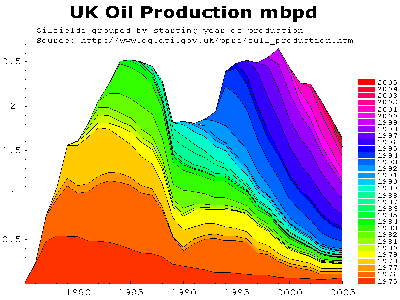The International Energy Agency is to call today for an energy revolution and a "major de-carbonisation" of global fuel sources as the world confronts tighter oil supplies caused by shrinking investment.
The energy watchdog is warning for the first time that oil output could pass its peak as power shifts from "super-majors" to national companies controlled by producer states. It highlights a potential oil-supply crunch.
...
Up to 64m barrels a day of extra gross capacity - the equivalent to almost six times that of Saudi Arabia today - needs to come on stream between 2007 and 2030. Almost half of that is required by 2015, with an extra 7m barrels a day over current plans approved within the next two years "to avoid a fall in spare capacity towards the middle of the next decade".
The Oil Drum has posted The 2008 IEA WEO - The Oil Drum Initial Review (Part 1 of a Series):
In stark contrast to bland-to-cornucopian supply commentary in past reports, the initial language in this years Executive Summary is of an urgent nature. This report is a step in the right direction for conveying our rapidly deteriorating energy situation to world policymakers - the IEA should be commended for making the turn and finally acknowledging: costs, investment limitations, new capacity requirements, steep decline rates of existing wells, and externalities (in this case GHGs). In effect, this report shatters the global illusion that oil resources magically turn into cheap flow rates. However, at first glance, the report's details do not support the urgent tone of the beginning paragraphs.

